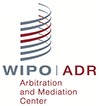Domain name disputes
If you have a claim over a .eu, .ею or .ευ domain name or if you want to dispute its existing registration, here is what you can do:
Contact the domain name holder
If you have an issue with a particular .eu domain name and you want to contact its holder, you can find their contact details on our web-based WHOIS.
Web-based WHOIS search results for companies versus private persons
If the domain name holder is a legal entity, you will see its registration name, address (city, country), as well as its e-mail address and preferred language of correspondence.
If the domain name holder is a natural person, you will only see their e-mail address and preferred language of correspondence. All other personal data will be hidden for privacy reasons.
For more information, please check our WHOIS policy.
Requesting disclosure of personal details
If you have a legitimate reason to obtain additional contact details of the domain name holder (other than those provided via the web-based WHOIS), we ask you to complete our request form and send it to [email protected]. Your request must clearly explain why you need the domain name holder's contact details and how you intend to use them.
Disclosure of any personal data is managed based on our Privacy Policy.
Dispute a domain name registration
In case you want to dispute a domain name registration, you may challenge its registration via the Alternative Dispute Resolution (ADR) procedure or via court proceedings.
To challenge a domain name registration via ADR you must have a prior right to the domain name (e.g. trademark, trade name, company name, family name, etc) and must show that the current domain name holder has registered it or uses it for speculative or abusive purposes.
What is an ADR procedure?
An ADR procedure is an alternative way to settle disputes over domain names. Most people choose to settle their disputes via ADR because it is generally faster and more convenient than a regular court proceeding.
ADR for .eu (or its variants in other scripts) domain names is offered by and can be initiated via:
The Czech Arbitration Court (CAC)
or
The WIPO Arbitration and Mediation Center (WIPO Center)
How does an ADR procedure evolve?
It only takes a few steps to start an Alternative Dispute Resolution (ADR) procedure:
1. Choosing an ADR Provider
To start a case or procedure, choose your ADR provider, which can be either CAC or WIPO Center.
2. Filing the Complaint
Once you have chosen your ADR provider, you can file your complaint through their respective website. During this process, you must provide the details of your complaint and the arguments that support your case. You will also get the chance to attach any relevant evidence.
3. Awaiting the Decision
The ADR panellists’ decision shall be in writing and will be communicated to you within 5 days after the decision is made.
4. Implementation of the Decision
EURid will implement the ADR decision by either keeping the domain name registered to the current domain name holder, or by transferring the domain name to the complainant, or making the domain name available for general registration on a first come first served basis.
ADR fees
The fees of an ADR procedure vary depending on the number of panellists and the number of domain names involved in your dispute. For a complete and up-to-date list of all ADR fees, please see the ADR provider’s respective website:
For CAC: https://eu.adr.eu/fees
For WIPO Center: https://www.wipo.int/amc/en/domains/fees/cctlds/eu/index.html
What happens once an ADR procedure is complete?
If you win your case:
- If you win the case and you are eligible to register domain names under .eu or its variants in other scripts, the domain name will be transferred to you. The Registry will contact you via email in respect to the transfer procedure following the 30-day appeal period.
- If you are not eligible to register domain names under .eu or its variants in other scripts, the domain name will be revoked after 30 days.
If you lose your case:
- ADR rulings are legally binding, and EURid will implement the decision unless you choose to appeal the decision through a conventional court of law within 30 days.
- If you do choose to appeal, please notify EURid of this during the 30-day appeal period.
ADR procedure main takeaways
- The ADR procedure is accessible and low cost. It may be initiated and conducted entirely online, so you do not need to travel.
- An ADR procedure represents a less costly option to a regular court proceeding.
- Independent panellists, who are experts in intellectual property rights, resolve ADR disputes.
- ADR proceedings are held in the language of the domain name holder (as shown in the web-based WHOIS), but as a complainant, you may also request to change to another official EU language.
- ADR proceedings take an average of three months to resolve.

